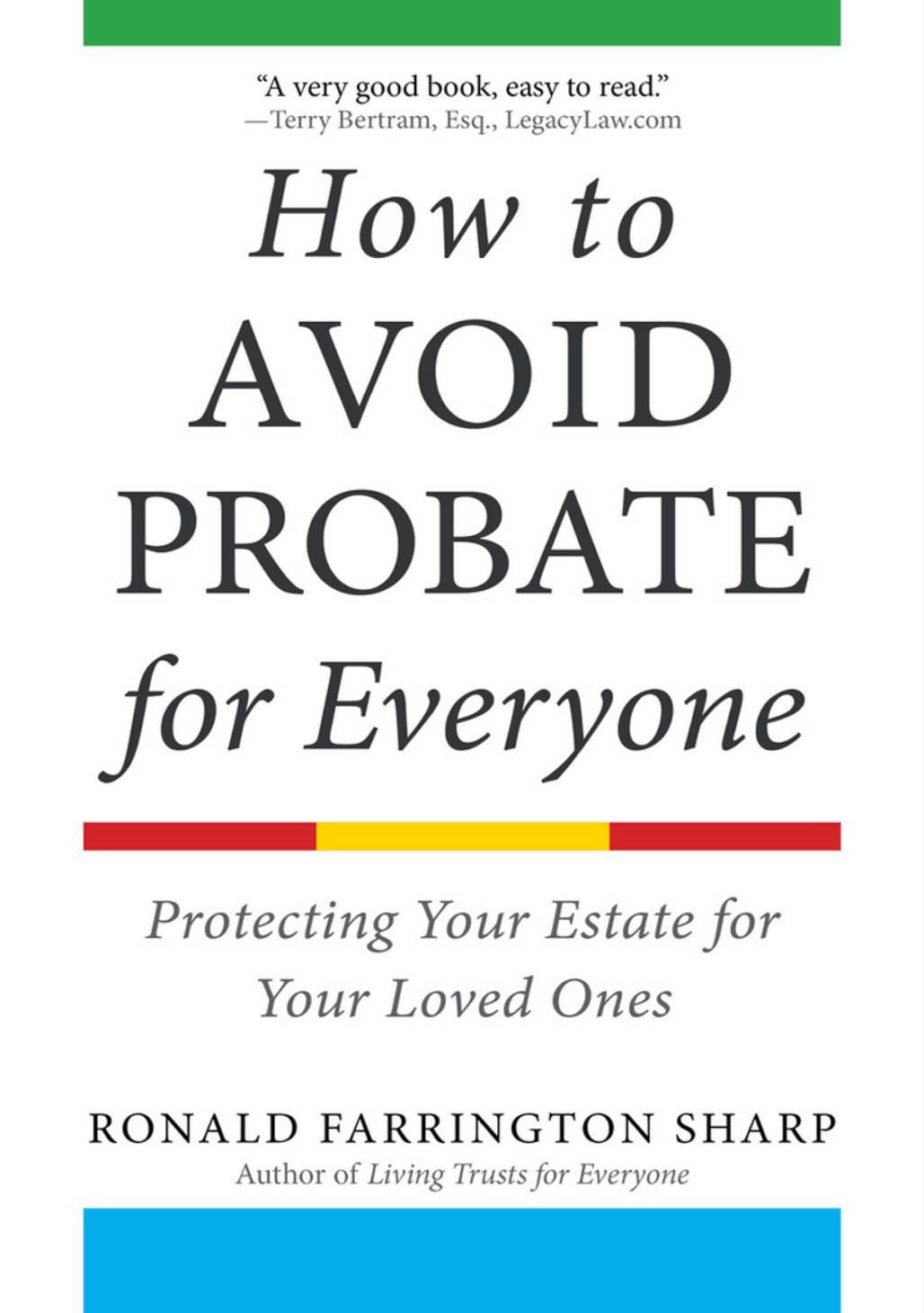After reading this book and possibly Living Trusts for Everyone, you will be familiar with basic estate planning strategies, including the difference between trusts and wills and the basics of probate avoidance. As I stated earlier, I do not recommend writing your own trust or downloading one and filling in the blanks. My advice is to fill out the information form in Appendix D and take it with you for an attorney consultation. Finding a specialist in trusts can be fairly easy in states where the bar association certifies that specialty. In other states, you are kind of on your own since all you would have to go on is the lawyer’s word that they know what they are doing.
Try interviewing more than one lawyer to see how they would recommend setting up your estate plan, how long it will take, and what will be the approximate cost. Do not agree to an open-ended hourly rate since you will often find the cost to be greater than the estimate. It’s unlikely to be less. Sign an attorney fee agreement once you have settled on the lawyer selection. Many states require these of lawyers. Sometimes the initial interview is free, but not always. There are many attorneys who will give you a flat rate after talking to you for a complete package, which, if it is a revocable trust-based plan, should include the following:
- The trust document itself. This includes all of your decisions regarding the trust, including who will be the trustees after your death, the shares to be distributed to each beneficiary, and standard legal provisions to make the trust work, as well as detailed descriptions of any restrictions on when and how distributions will be made to the beneficiaries.
- The personal property distribution list in which you can designate particular items to go to particular people.
- A durable power of attorney for each grantor, either an immediate durable power of attorney or a springing power of attorney effective on your disability as defined in the document.
- A medical power of attorney and advance directives. This can include a so-called living will to set out your wishes as to providing life support in terminal situations. The people named as your medical decision-makers can be different than your successor trustees.
- Pour-over will to direct any assets that are not yet in the trust name to the trust as well as appointing a guardian for minor children.
- Instructions for funding the trust as well as sample forms for making the transfers.
- Deeds from you to your trust for all real estate. If there is property you own outside your state of residence, your attorney will have to either be licensed in that jurisdiction or have an attorney or title company in that state prepare the deed. Otherwise probate will be necessary for each state in which you own real estate.
After the attorney interviews you, will have a pretty good idea if they know what they are talking about. You should feel comfortable with them. If the lawyer will agree, see if you can get a draft copy of all documents to review before signing anything other than the attorney fee agreement. These documents are of necessity detailed so as to cover foreseeable situations, and you can’t be expected to read all of them while sitting in the lawyer’s conference room.
(To be continued...)

This excerpt is taken from “How to Avoid Probate for Everyone: Protecting Your Estate for Your Loved Ones” by Ronald Farrington Sharp. To read other articles of this book, click here. To buy this book, click here.
The Epoch Times copyright © 2024. The views and opinions expressed are those of the authors. They are meant for general informational purposes only and should not be construed or interpreted as a recommendation or solicitation. The Epoch Times does not provide investment, tax, legal, financial planning, estate planning, or any other personal finance advice. The Epoch Times holds no liability for the accuracy or timeliness of the information provided.





